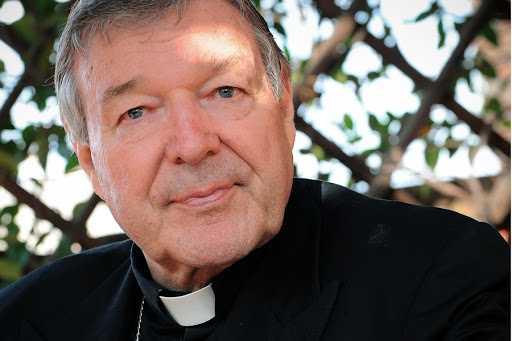VATICAN CITY — The Synod on the Family may have concluded in the Vatican, but a “virtual synod” is now underway in the media. And one high-ranking cardinal is urging people not to believe the spin.
On Sunday morning, prior to the noonday Angelus, Aleteia spoke with Cardinal George Pell, Prefect of the Vatican Secretariat for the Economy, about his assessment of the final synodal document and how it should rightly be interpreted. The Australian Cardinal also explained how clergy, ordinary Catholics and all people should navigate their way through the “virtual synod.”
Your Eminence, what is your overall assessment of the final synodal document?
It’s a consensus document. All of the 94 paragraphs were passed. Two of them, one in particular, scraped through to two thirds by just one vote, not because they are heretical but because they weren’t clear enough.
The document is well structured, it’s elegantly written and in no sense is it intellectually embarrassing, as the Instrumentum Laboris was. Furthermore, it endorses no departures from Church doctrine or fundamental practices.
The document also has an adequate teaching on conscience. Conscience has to be formed according to the teachings of the Church, and on the subject of divorce and remarriage, according to the full teachings of John Paul II and the teachings of the Church.
Following the release of the synod document, headlines in the European press included: “Divorced people to be allowed to receive Holy Communion on ‘case by case’ basis” while others in the media are referring to paragraphs 85 and 86 as “the paragraphs on communion for the divorced and remarried.”
Those headlines are inaccurate, unjustified and misleading. People should read the document, not what has been spun to them. I also think it is important for the press to actually read what was said and not just unthinkingly take the line which they’re being fed.
Paragraphs 85 and 86 are not on communion for the divorced and remarried. Communion for the divorced and remarried wasn’t mentioned in the document. It wasn’t mentioned even as a possibility. No endorsement has been given for it, and if priests or people are to use their conscience, they have to have an informed conscience based on the teachings of the Church.
The “discernment” spoken of in paragraph 85 must be effected in light of all of the teachings of John Paul II, especially Familiaris Consortio. In the middle of the paragraph, it says “according to the teaching of the Church.”
To be clear then, paragraphs 85 and 86 do not leave the door open to communion for the divorced and remarried, as some in the Church and the media are suggesting?
The final document certainly doesn’t, but people need to read it. It’s a consensus document and there is no consensus for Communion for the divorced and remarried. It wasn’t mentioned in that paragraph. Undoubtedly some people would like it to pave the way for change, and will try to use it for that.
I too would have appreciated a bit more clarity in these matters. But there is no heresy in the synodal document at all, as one senior official involved with the document has said.
What would you say, then, to those in the Church and the media who say things are not “black and white” on the issue of communion for the divorced and remarried?
Things aren’t always gray. Sometimes things are black and white. War, exploitation of women, exploitation of children, drug running, there is black and white on those issues. And there is clear teaching from Jesus on marriage, family and sexuality.
The Church in this document has spoken very mercifully and has shown that it understands the enormous of complexity and variety of situations, whether Catholics or others find themselves. So it’s not all gray. There are are number of condemnations quite explicitly in the document. Not everything is black and white, but life is a rich texture of many, many colors, and the Church has got to put forward pure and undiluted teaching of Jesus Christ on these matters.
Paragraph 85 is clear: You can exercise your conscience defined adequately in paragraph 63. On these matters, following the full teaching of John Paul II and the teachings of the Church. We’ve been given no right to turn Church teaching upside down in that paragraph. Read it carefully.
During one of the synod press briefings, we heard a synod participant from Germany say he thought subjects like communion for the divorced and remarried, and matters pertaining to homosexuality—including the Church’s acceptance of active homosexual relationships—should be devolved to the local level.
Doctrine is one. The parties that are involved in this aren’t so much those who want devolution. The parties are those, unfortunately, inside and outside the Church who want us to rewrite the Catholic Church’s teachings on sexuality, marriage and the family and go in the way of a radically liberal interpretation of Christianity that has already destroyed the Catholic Church in Belgium, Holland and Quebec, and has enormously damaged the radically liberal Protestant churches.
The lessons of history on this particular matter are absolutely clear. The synod does not endorse any such change, and for us to head in that direction would be an enormous mistake.
As the “virtual synod” continues in the media, how should clergy and everyday Catholics navigate their way through it? What’s the solution?
The teachings of Jesus as interpreted by the Catholic Church over the years. And that includes the Gospels (i.e., Jesus’ teaching on adultery and remarriage); the Council of Trent; John Paul II and Benedict XVI. There’s no way around it.
Diane Montagnais Rome correspondent for Aleteia’s English edition.

